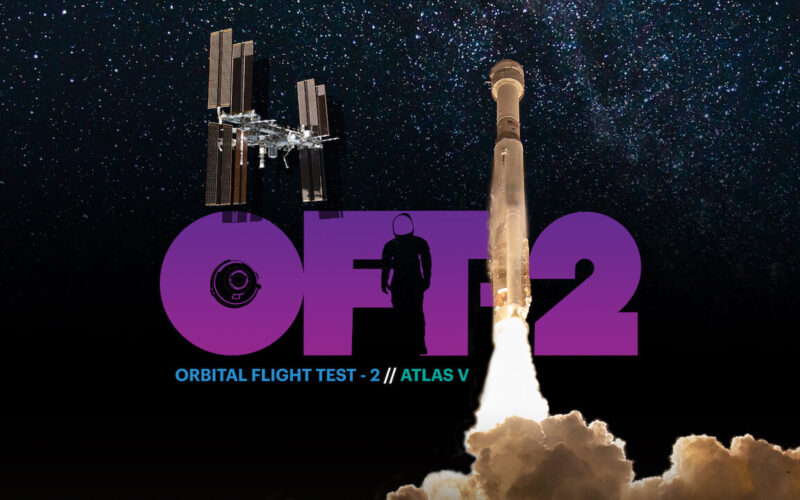Boeing has successfully launched its new passenger spacecraft, the CST-100 Starliner, on a crucial flight test to the International Space Station (ISS).
The Starliner spacecraft, which did not carry any crew, lifted off atop a human-rated United Launch Alliance Atlas V rocket at 18:54 Eastern time from Space Launch Complex 41 at Cape Canaveral Space Force Station in Florida on May 19, 2022.
See #Starliner‘s #OFT2 launch atop the @ulalaunch #AtlasV during ULA’s 150th launch. pic.twitter.com/JCV7MIKRmN
— Boeing Space (@BoeingSpace) May 20, 2022
The test flight, which is part of Boeing’s contract with NASA, marks an important step in certifying the Starliner capsule to eventually carry astronauts into space.
Boeing said in a statement that another previously flown spacecraft is undergoing preparations to carry astronauts to and from the space station for NASA’s Commercial Crew Program.
According to Boeing’s Starliner mission update, the spacecraft has completed the orbital insertion burn and is currently flying in its intended orbit. It is expected to arrive at the ISS for docking at around 19:10 Eastern Time on May 20, 2022. After it docks, the Starliner will spend five to 10 days in orbit before returning to Earth.
Though there are no crew onboard the Starliner, the spacecraft’s commander seat is occupied by Rosie the Rocketeer, a dummy astronaut outfitted with sensors to collect data on what astronauts can expect when they take a flight on the Starliner.
The capsule is also carrying more than 800 pounds (363 kilograms) of cargo, including about 500 pounds (227 kilograms) of NASA cargo and crew supplies.
The much-awaited flight was Boeing’s third attempt to launch the Starliner after it experienced a series of delays.
In 2019, on its maiden uncrewed flight to the ISS, the Starliner failed to attain a proper orbit.
The Starliner was then scheduled to be launched on July 30, 2021, however the flight was postponed after a new system error was found.
During its next launch attempt on August 3, 2021, Boeing engineers found a new error with a “number of potential causes, including software” as well as “unexpected valve position indication” in the capsule’s propulsion system. These delays have cost Boeing $185 million.
With any luck it will be third time lucky for Boeing, who has fallen behind competitor SpaceX. In 2019, SpaceX successfully launched its own uncrewed capsule, the Dragon. The first crewed Dragon, named Resilience, flew to the ISS carrying astronauts in November 2020.
Both Boeing and SpaceX are under contract with NASA to transport astronauts to the ISS.
See views from the Space Launch Complex-41 launch pad and spacecraft separation during today’s #Starliner #OFT2 liftoff atop a @ulalaunch #AtlasV. Stay tuned for docking with @Space_Station on May 20. pic.twitter.com/Ztjs36IwQf
— Boeing Space (@BoeingSpace) May 20, 2022
“We’ve learned a lot about the capability of our spacecraft and the resilience of our team since the first Starliner launch,” vice president and program manager of Boeing commercial crew program Mark Nappi said in a statement.
“We still have a lot of operational testing ahead as we prepare to rendezvous with the space station, but we’re ready to demonstrate the system we’ve worked so hard on is capable of carrying astronauts to space.”

